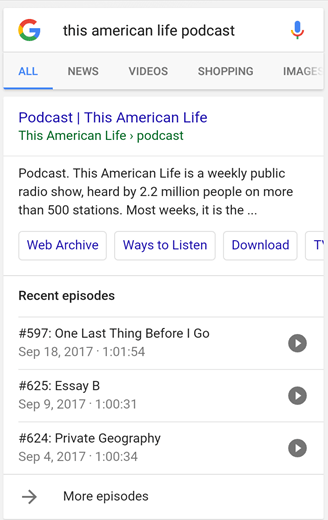Google's upcoming "mobile-first" index is worrying too many search marketers and for good reason - no one is exactly sure what they should ultimately be doing to ensure they don't lose traffic from the search engines when the actual roll out occurs (which will supposedly be early 2018).
Does "mobile-first" mean implementing AMP is now a necessity or is a responsive website design enough? Should webmasters and SEOs just concentrate their energy on finding ways to accelerate the page loading experience? Is there really anything at all, any secret, that can actually help enterprises'' search engine optimization initiatives?
While there are a long list of factors that could potentially impact placement on the search results (none more important of course than the quality and volume of citations/links), the goal of all websites should be to deliver an optimal experience for their prospective visitors.
In a time when more than half of all Web traffic comes from mobile devices, of course, one of the smartest things Web professionals can do right now in advance of the mobile first roll out, however, is to use structured data.
Marking up products, reviews, events, etc., with structured data (preferably in the JSON-LD format) in the form of Schema.org (which Website Magazine has covered repeatedly over the years) makes a website easier to understand (comprehend what it's about) by search engines.
While implementing structured data is not going to improve a website's actual ranking or placement on the search results by itself, what it does do is offer up an opportunity to produce a better search result and that in itself is reason enough to consider the approach. Why? It's easier for a website to stand out and get noticed by potential visitors. Ultimately, that means more clicks.
What sort of data can be "structured" to help a website's pages (and content) stand out on the mobile search results? Believe it or not, pretty much everything.
Multimedia assets like podcasts and videos provide an excellent opportunity for example, as do events and datasets. Articles are also likely going to be quite appealing to the majority of Web professionals today as most already publish this type of content and the format provides a chance to appear in the carousel - a dominant feature on the mobile search results at Google.
No one really knows what the effect will be when Google does actually go "mobile-first" (again, expected to happen in early 2018) and many just feel lost in a virtual sea of vague information. Putting users first, however, and presenting the information they need in an accessible format (a format recommended by all of the major search engines) is the smartest and savviest initiatives an SEO can undertake in advance of the mobile-first roll out.

